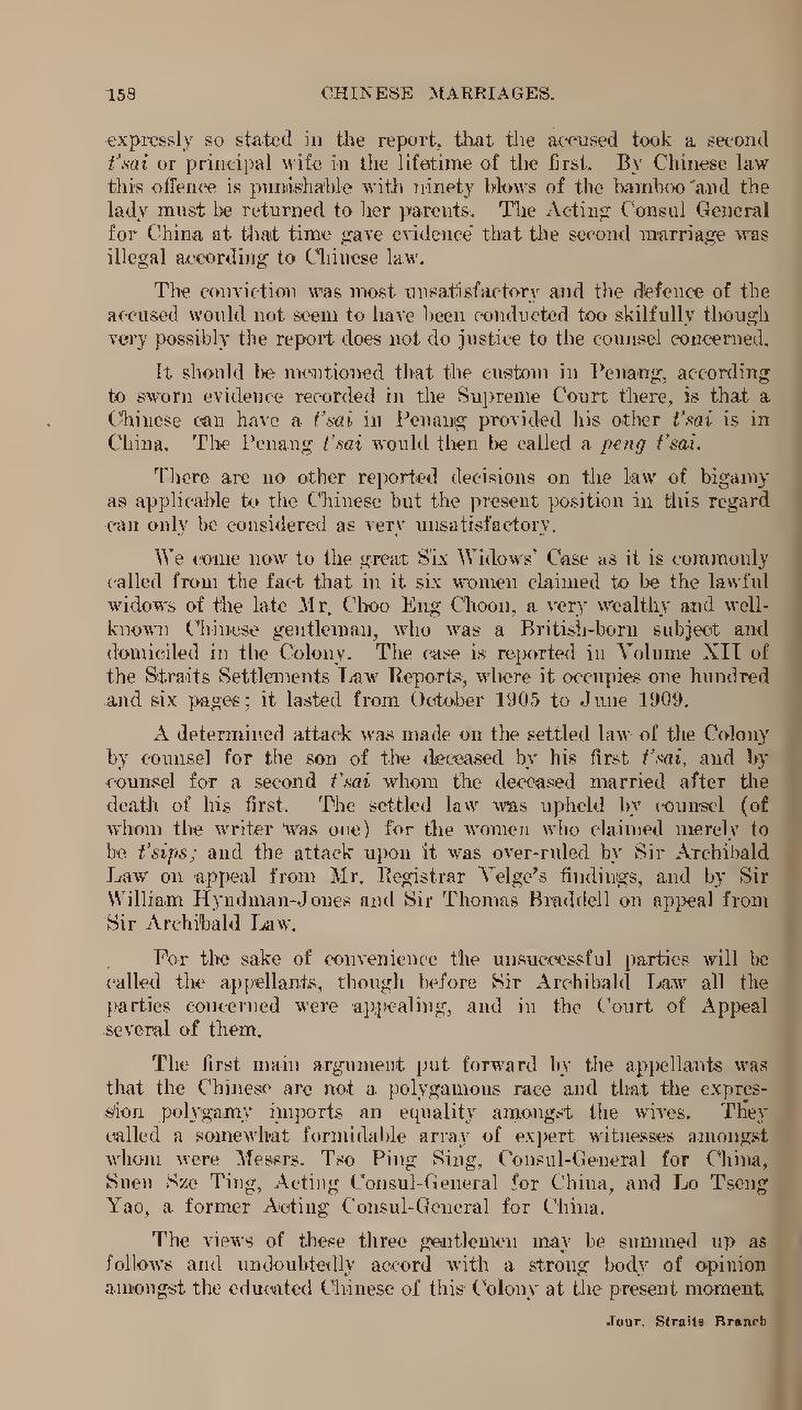expressly so stated in the report, that the accused took a second t'sai or principal wife in the lifetime of the first. By Chinese law this offence is punishable with ninety blows of the bamboo and the lady must be returned to her parents. The Acting Consul General for China at that time gave evidence that the second marriage was illegal according to Chinese law.
The conviction was most unsatisfactory and the defence of the accused would not seem to have been conducted too skilfully though very possibly the report does not do justice to the counsel concerned.
It should be mentioned that the custom in Penang, according to sworn evidence recorded in the Supreme Court there, is that a Chinese can have a t'sai in Penang provided his other t'sai is in China. The Penang t'sai would then be called a peng t'sai.
There are no other reported decisions on the law of bigamy as applicable to the Chinese but the present position in this regard can only be considered as very unsatisfactory.
We come now to the great Six Widows' Case as it is commonly called from the fact that in it six women claimed to be the lawful widows of the late Mr. Choo Eng Choon, a very wealthy and well-known Chinese gentleman, who was a British-born subject and domiciled in the Colony. The case is reported in Volume XII of the Straits Settlements Law Reports, where it occupies one hundred and six pages; it lasted from October 1905 to June 1909.
A determined attack was made on the settled law of the Colony by counsel for the son of the deceased by his first t'sai, and by counsel for a second t'sai whom the deceased married after the death of his first. The settled law was upheld by counsel (of whom the writer was one) for the women who claimed merely to be t'sips; and the attack upon it was over-ruled by Sir Archibald Law on appeal from Mr. Registrar Velge's findings, and by Sir William Hyndman-Jones and Sir Thomas Braddell on appeal from Sir Archibald Law.
For the sake of convenience the unsuccessful parties will be called the appellants, though before Sir Archibald Law all the parties concerned were appealing, and in the Court of Appeal several of them.
The first main argument put forward by the appellants was that the Chinese are not a polygamous race and that the expression polygamy imports an equality amongst the wives. They called a somewhat formidable array of expert witnesses amongst whom were Messrs. Tso Ping Sing, Consul-General for China, Snen Sze Ting, Acting Consul-General for China, and Lo Tseng Yao, a former Acting Consul-General for China.
The views of these three gentlemen may be summed up as follows and undoubtedly accord with a strong body of opinion amongst the educated Chinese of this Colony at the present moment.
